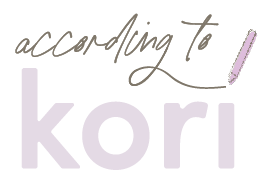3 Ways to Make Your Writing Clear and Concise
Writing has always been something that came naturally to me. I fell in love with it the day my first grade teacher gave my entire class personal journals to write in every day. Throughout high school, I took advanced english courses and got As on all of my writing assignments. In college, I wrote for the campus newspaper and landed a bomb editorial internship in New York at McGraw-Hill, one of the largest publishing companies in the world.
So when I landed my first editorial job out of college as an associate editor at a business media company, oh I was FEELING MYSELF, HONEY. One of my main goals at the time was to get my name on a masthead by 25, and I did it at 23. I knew I was a beast at writing and had no doubt I would be successful in my new role. But it wasn't long before I learned how much I actually didn't know about writing, and my happy a** got humbled #REALquick.
My first feature article got ripped to shreds. I felt like the baddest b**** when I submitted it to my editor. But when he sent me back his edits, I felt like a lost puppy dog. One key piece of feedback he gave me was that my writing was too wordy.
I was flabbergasted and utterly confused. For years, I thought using a bunch of big, fancy words helped my writing paint a more vivid picture, but I had it all wrong. While using strong, descriptive language (which I'll dive into in a future post) is one thing, clogging your writing with too many adjectives and adverbs is another.
The same rule that applies to style applies to writing: less is more, honey. So if you currently suffer from WWV -- writer's word vomit -- like I did, fret not, my friend. There is a cure.
Below are three ways to make your writing clear, clean and concise:
1. Limit adverb use.
Adverbs are words that modify verbs, adjectives, other adverbs and sentences. They describe how -- or in what manner -- something happens. Many adverbs end in "-ly" (i.e. daily, completely, loudly, impatiently, etc.), while others closely resemble adjectives (i.e. fast, quite, always, etc.). Although adverbs are used commonly in writing, overusing them denotes lazy, cluttered writing. Take the following example, for instance:
The door opened suddenly and Rob came quickly into the room, looking angrily at Fiona.
Whew! Aren't y'all exhausted from reading that? Chile, I know I am. Packing your sentences with adverbs ultimately congests your writing and hinders you from giving readers a clear description of what's happening. Rather than go into adverb overkill, use strong action verbs that can paint a more vivid picture of what you're describing. So instead of writing the sentence above, you could write something like:
The door flung open and Rob marched into the room, glaring at Fiona.
See how much cleaner that reads? The verbs in this sentence paint a clear picture of what's happening and make the writing much more streamlined. Pro Writing Aid says writers should use no more than one adverb per 300 words (well, that's a bit meticulous lol). But the point is, try using strong action verbs that provide a better visual of what you're trying to say. You can still use adverbs, but limiting them will help strengthen your writing.
2. Cut the fluff.
If you have something to say to readers -- whether it's in a blog post, essay, email or website tagline -- get straight to the point. You don't have to pump your writing with unnecessary filler words to entice your readers or make yourself sound smart. Adding a bunch of fluff to your writing only clouds your message and confuses your readers. Good writing is simple and direct, and only uses words that are necessary to get your message across. This site provides some great examples of how you can cut the fluff from your writing.
3. Punctuation is your friend.
You don't have to say it all in one sentence. Break it up. Use a period. Or a comma. Or a semicolon, if you're feeling really frisky. Punctuations -- when used correctly -- transform our muddled thoughts into clear, direct statements. They're here to help us.
What are some challenges you face when it comes to writing more clear and concise? Do you have a desire to strengthen your writing?
Book a Writing Style Session with me and let me help you #getWRITE!
Sincerely,
#TheWritingStylist
